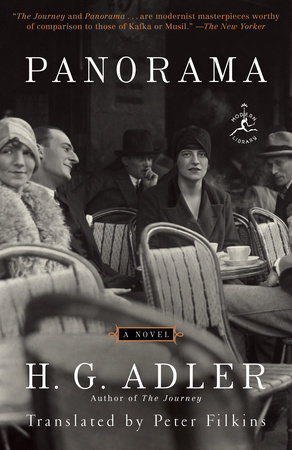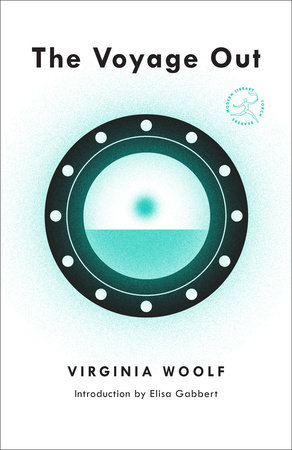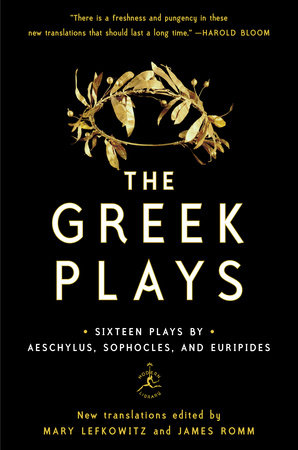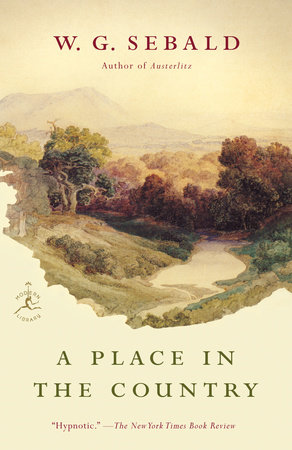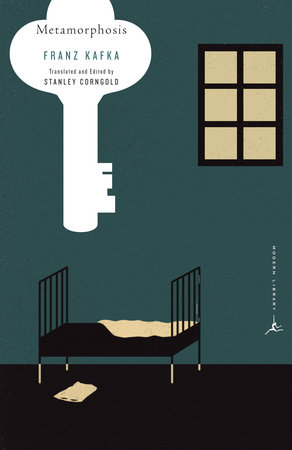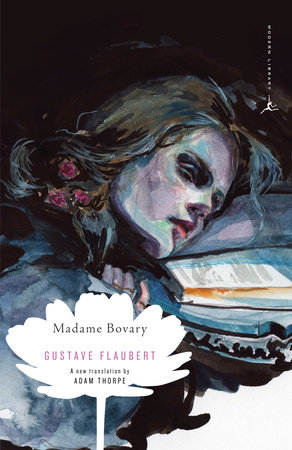Excerpt
Panorama
9781400068517|excerpt
Adler: PANORAMA
The Visit to the Panorama
There’s a new program today. We’re going to the panorama.” Josef hears the voice of his grandmother and looks up from his toy. Panorama. Various pictures from all over the world. “Really, are we going?” The toy is abandoned, the dominoes, the building set, the train. It’s a long way, yet Josef and his grandmother love the panorama. They sit in the streetcar, the motor rattles and sings. Josef often plays streetcar. He runs along the long curbstones of the sidewalk, which is the track. Josef hums with his mouth closed and imitates the streetcar. First he calls out, “Ding! Dong Dong!,” then comes the humming and sighing of the motor. Streetcar conductor is the best job of all, for you get to sell tickets, punch the tickets, and call out the stops.
“We have to get off, Josef, come!” They draw past the embankment and see many people all dressed up. “Give me your hand! It’s so crowded here.” Already they have turned in to the quiet little lane where the panorama is located. Now they stand before the door. It’s a simple storefront with a small display window, and there Josef peers at the beautiful pictures, whether it be Vesuvius, Niagara Falls, the Great Pyramid, or other wonders of the world. There’s also an announcement for that day’s program. Josef sounds it out: “Li-ma, the Cap-i-tal of Pe-ru.”—“Come, come, there’s more to see inside.” They next enter a little lobby that is separated from the actual panorama by a heavy curtain. Behind a table on which stands a sign that says tickets sits a powdered woman. Grandmother gives her a silver coin and takes from the powdery lady two little red tickets, as well as a nickel and some copper change. Josef is allowed to pocket the nickel. “Save it! Don’t spend it on sweets!”
The grandmother weaves her way with Josef through the curtain and enters an almost completely darkened room. Around a polyhedral wooden cabinet high stools are arranged. In front of each one there are two round openings, which are dark peepholes located beneath a metal shield. You hold your eyes up or press them to the shield and the program appears. An attendant receives the guests and takes them to two free spots. The grandmother sits down, but the attendant lifts Josef up and presses him close to the peepholes. The two peepholes are there so that you see everything just the way it really looks, and everything is enlarged so that it seems completely alive. Everything appears lit by brilliant golden light, as if dipped in tropical sunlight. Each picture stands there for a minute, maybe less. To Josef it feels like a good long time. He’s pleased that it lasts so long, for he can’t get enough of the splendid sights. But it’s a shame that the people, animals, and wagons in the pictures don’t move. Though the fact they don’t move doesn’t make the life depicted in the beautiful pictures any less marvelous, it does make them seem like something outside of time. Before the pictures change, the delicate strike of a little bell warns: “Attention, time’s up! Get ready for the next wonder!” Then the picture moves away, another draws near, the next stands before Josef at last. If he doesn’t turn his gaze away from the peepholes and presses his face hard against the shield, he feels completely alone with the pictures. The daily world disappears and is gone. The viewer and the picture become one on the inside, no one can get in. Josef himself, however, cannot wander off into the pictures, for he remains sitting on his stool, his upper body bent forward slightly. Because of this he cannot sit comfortably, nor is there any chair back, so there’s no resting at all. In the panorama, however, that doesn’t matter. Josef is content. One can be comfortable anywhere else, it’s only in the panorama that this isn’t possible. Everything here is hard and fixed and tense. That’s why it’s not necessary for the grandmother to say, “Pay attention, in order that you get something out of this and learn from it!” Only when the pictures change does the tension ease for just a moment. Josef scoots forward on his stool in order to see better still. Beneath the peepholes a piece of tin is attached against which he breathes. The tin gathers moisture and sometimes Josef likes to run his fingers over its smooth flatness so that his fingertips feel damp. The grandmother pays no attention to Josef, for she knows how the panorama captivates him, so much so that he is better behaved than usual. That’s why the little naughtiness with wiping his fingers remains ignored. Normally there is no opportunity here to misbehave. The otherwise familiar world has disappeared. Here is another world, which one can only gaze at, there being no other way to enter but to gaze. Only these little holes are there for the eyes. Josef can see so for himself, simply by touching the glass, that there is no other way in. All the people and the distant lands that you encounter in these pictures remain untouchable behind the glass walls that are only large enough for the eyes.
It’s fairly quiet in the panorama. Except for the little bell that announces the change in pictures, you only hear the guests coming and going, or a stool scraping, now and then a couple of words someone might whisper to his neighbor. You hardly ever hear the attendant. Thus the world you normally live in is turned off, and has in fact passed away. Another world is risen, which neither reading nor studying nor even dreams can manifest. Nonetheless, Josef can step only a little way into the other world, though he cannot take part in it. If he shoves his knee forward he immediately bumps up against the wooden cabinet. Soon it’s clear how little is allowed. Everywhere there are barriers, nowhere can you immerse yourself entirely. Josef sees the other world, but it doesn’t care about him. It consists only of parts that are put together. The only way for it to be different would be for the pictures to move, to continue on and flow into one another, yet each is presented on its own and is clearly separated from the next. The other world is a program that is immensely beautiful, but nothing more. Next week the program changes, and so on week after week. There is no whole, only individual pieces without end. Even today’s program has no proper end but just repeats itself over and over. There are perhaps sixty, maybe eighty pictures, though there certainly are not a hundred. Eventually a picture comes along that has been there already. Josef doubts this at first, but after the next chiming of the little bell another picture appears that is also familiar. The grandmother still looks on. She starts to get restless on her chair. After the little bell strikes again and a third picture arrives that most certainly has been there already, the grandmother turns to Josef. “It’s over, my dear. We’ve seen that one already. We have to go.”
The grandmother stands. The attendant is already there and lifts Josef down; the grandmother helps and takes the boy by the hand. Then the attendant pulls back the curtain. In the lobby the daylight is so strong that the grandmother warns, “Child, close your eyes!” She doesn’t have to say anything, for Josef squints and allows himself to be led out almost blind. The grandmother doesn’t let on how much it all pleased her, but says, “Be careful, and watch where you’re going.” Josef doesn’t know whether the warning is about the spectacle in the panorama or the way that leads home.


